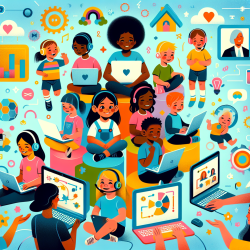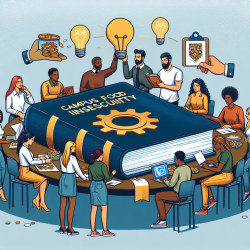Introduction
The COVID-19 pandemic has had a profound impact on poor urban neighborhoods worldwide. A recent study titled The Impact of the Pandemic on Poor Urban Neighborhoods: A Participatory Action Research Study of a “Favela” in Rio de Janeiro provides valuable insights into these impacts, particularly in the Cidade de Deus (CDD) favela. This blog aims to translate these findings into actionable strategies for practitioners providing online therapy services to children in similar contexts.
Key Findings from the Study
The study revealed several critical impacts of the pandemic on the residents of CDD:
- Economic Hardship: The most significant impact was the loss of jobs and income, with 59% of respondents citing this as their primary concern.
- Mental Health Issues: 88% of respondents reported worsening mental health, with anxiety, stress, and depression being prevalent.
- Educational Disruptions: School closures led to significant educational setbacks, with many children lacking access to online learning resources.
- Community Resilience: Despite these challenges, the community demonstrated resilience through mutual aid and local support systems.
Implications for Online Therapy Practitioners
Practitioners providing online therapy services to children in similar urban poor neighborhoods can leverage these findings to enhance their practice:
1. Addressing Economic Hardship
Understanding the economic context of the families you serve is crucial. Many families may struggle with basic needs, which can affect their ability to participate in therapy sessions. Practitioners can:
- Provide flexible scheduling to accommodate parents' work hours.
- Offer resources or referrals to local aid organizations that can help with food, housing, and other essentials.
2. Focusing on Mental Health
Given the high prevalence of mental health issues, integrating mental health support into therapy sessions is essential. Practitioners can:
- Incorporate mindfulness and stress-relief techniques into sessions.
- Collaborate with mental health professionals to provide comprehensive care.
3. Mitigating Educational Disruptions
Educational setbacks can have long-term impacts on children's development. Practitioners can support educational continuity by:
- Integrating educational content into therapy sessions to reinforce learning.
- Providing parents with strategies to support their children's education at home.
4. Leveraging Community Resilience
The study highlights the importance of community support systems. Practitioners can build on this resilience by:
- Encouraging families to engage with local support networks.
- Facilitating group therapy sessions to foster peer support among children.
Encouraging Further Research
While the study provides valuable insights, further research is needed to understand the long-term impacts of the pandemic on poor urban neighborhoods. Practitioners are encouraged to engage in participatory action research (PAR) to gather data and develop context-specific interventions.
Conclusion
The findings from the study on CDD offer crucial insights that can help online therapy practitioners better support children in urban poor neighborhoods. By addressing economic hardships, focusing on mental health, mitigating educational disruptions, and leveraging community resilience, practitioners can create more effective and holistic therapy programs.
To read the original research paper, please follow this link: The Impact of the Pandemic on Poor Urban Neighborhoods: A Participatory Action Research Study of a “Favela” in Rio de Janeiro.










